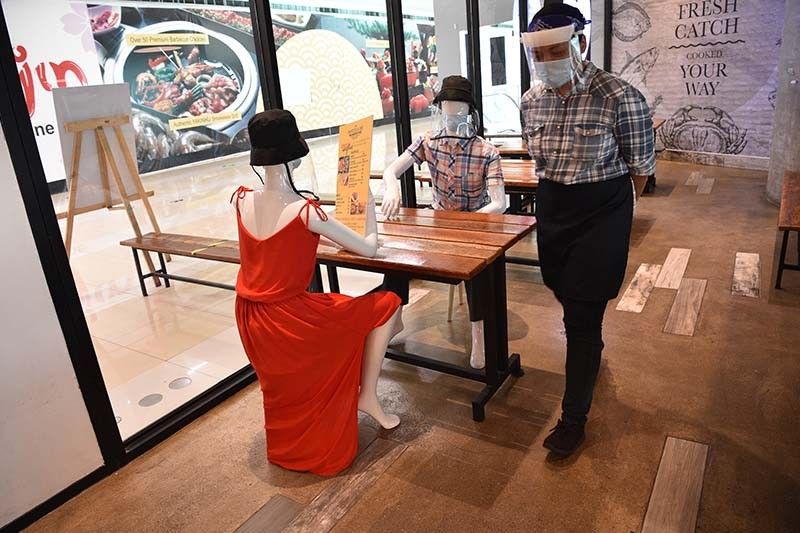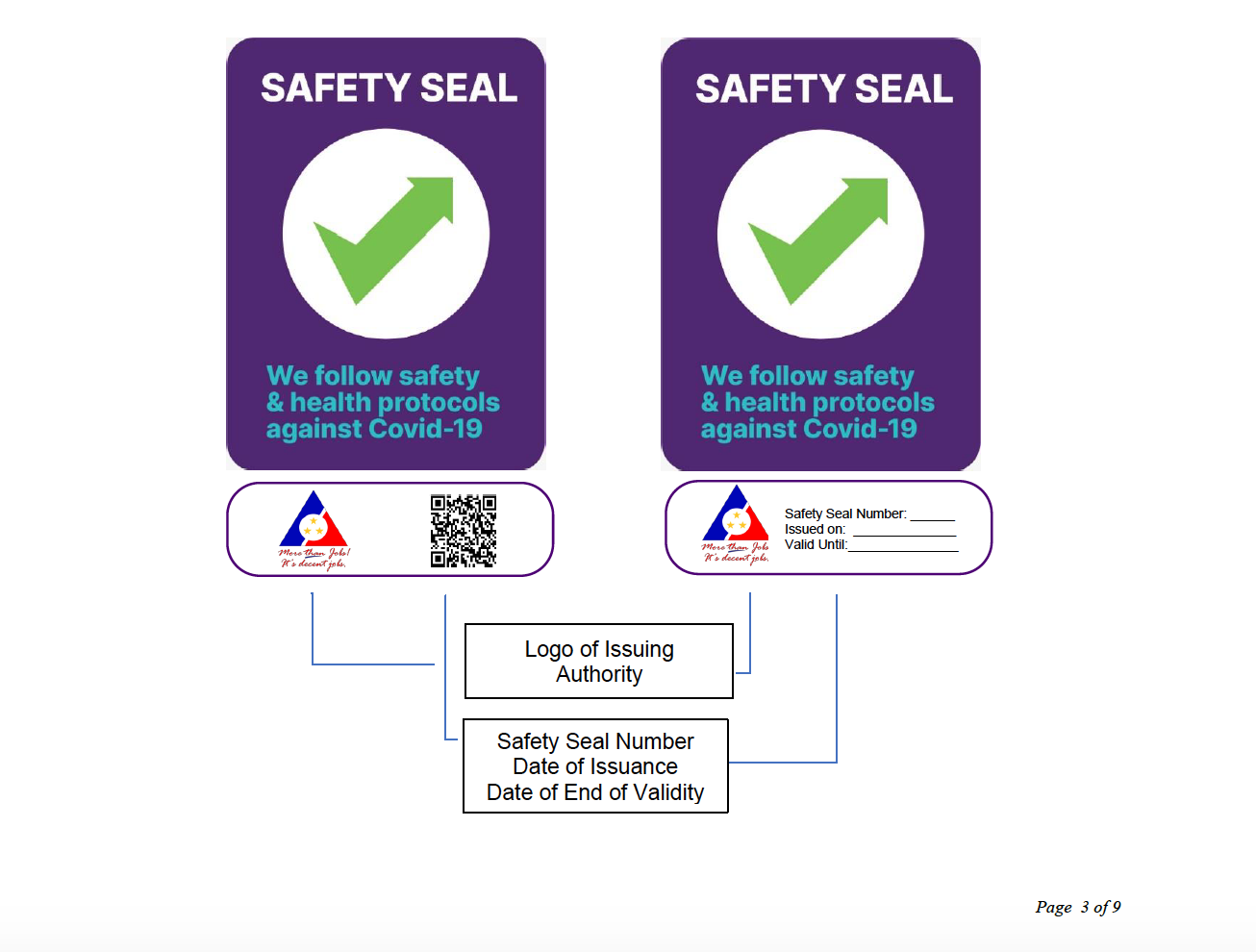Philippines marks stores safe to entice consumers to go out

MANILA, Philippines — Struggling to bring people out of their homes and toward their nearly deserted malls, the Philippines came up with a fix to entice its consumers to go out, dine and shop: place stickers on stores to show they follow health guidelines.
For sure, the so-called “safety seal” is far from being a “COVID-19-free seal” but rather an assurance to customers that while shopping, businesses that host you are compliant with pandemic protocols including wearing of masks and face shields for employees, acrylic barriers in tables, distancing in seats and constant disinfection.
“What the safety seal does is those which has it, at least people are assured even without asking, and even just approaching the establishment, that the place is safe,” Trade Secretary Ramon Lopez said in an online briefing.
The sticker shows a green check mark against a white backdrop over a purple sheet of paper. The following statement is also written over it: “We follow safety and health protocols against Covid-19.”
That should assure customers that the store passed government inspections, and found observing health standards. Exempted from the rules are health facilities which already apply for separate clearances. Lopez said the seal, which is not mandatory but “encouraged”, would have to be visible at entrances.
Each seal will be valid for 6 months but may be revoked anytime when a business is found with violation.

Whether or not the safety seal will be effective on bringing the people safely back outdoors remain to be seen. As it is, even without the government looking over their shoulders all the time, a big majority of 94.7% of establishments in Metro Manila were already found practicing health precautions to fight the deadly disease.
Apart from that, initial government mechanisms to get a good handle of the virus while keeping the economy open have largely failed. Foremost of which was contact tracing using the StaySafe app, which until recently, was owned by a private company. The government had finally acquired it, but issues on data privacy while using the app persists.
That said, the government has no choice but to bank on its legion of consumers to spend again and get the economy going. What’s at stake is something much bigger: a rebound from a record 9.5% gross domestic product slump last year to as much as 6.5-7.5% growth this year. This quarter’s performance already looks ugly, with new COVID-19 infections prompting the return to lockdown of Metro Manila and four nearby urban areas.
“There’s nothing new, we're just reinforcing compliance with safety health protocols,” Interior and Local Government Secretary Eduardo Año said in the same briefing.
“This is a work in progress,” Año said. “This coming May we will see the outcome of our work.”
- Latest
- Trending





























